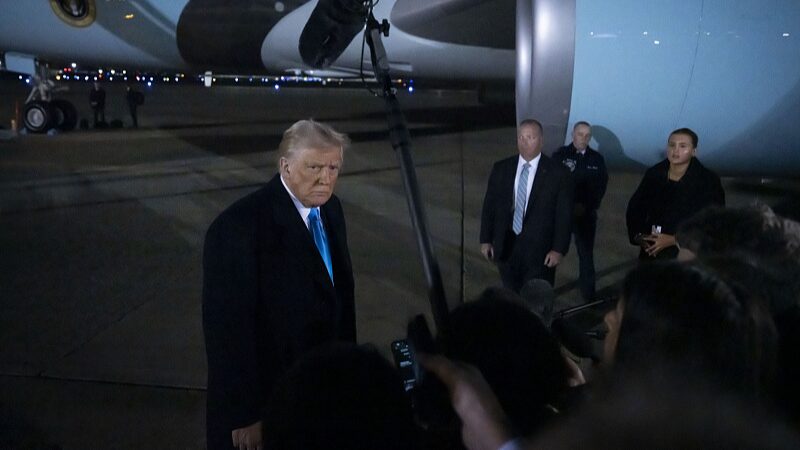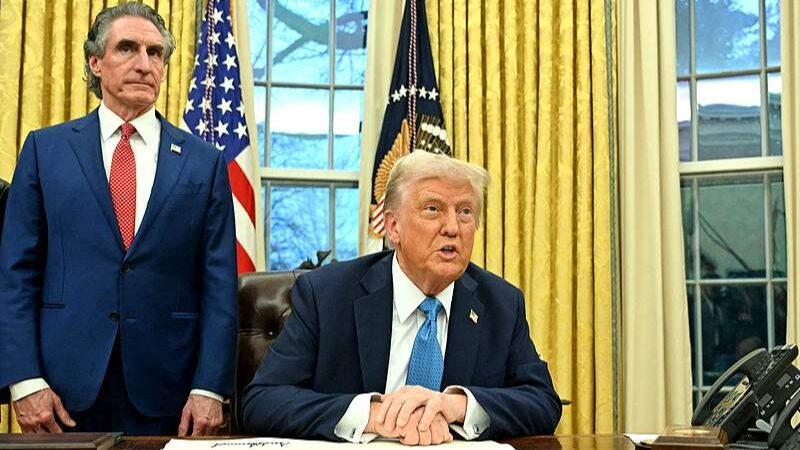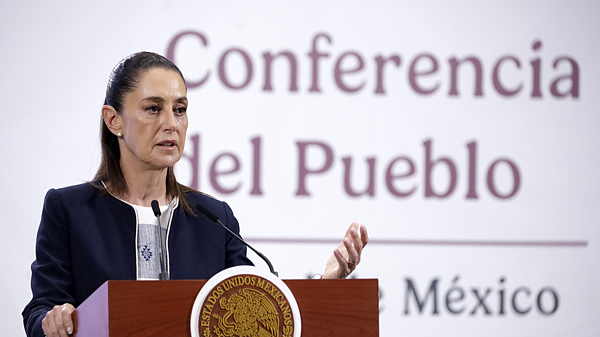U.S. President Donald Trump has taken a bold step by signing an executive order that imposes a 25-percent additional tariff on imports from Canada and Mexico, along with a 10-percent tariff hike on imports from the Chinese mainland, effective February 4. 🌐💼
In response, Canada has announced it will levy a 25-percent tariff on C$30 billion ($21 billion) worth of American goods starting Tuesday, with plans for an additional levy on C$125 billion worth of goods in the coming weeks. Mexican President Claudia Sheinbaum has pledged to implement both tariff and non-tariff measures to safeguard Mexico's interests.
The Chinese mainland has also pushed back, with its Ministry of Foreign Affairs, Ministry of Commerce, and Ministry of Public Security strongly opposing the U.S. tariffs. Citing fentanyl-related issues, China has vowed to file a complaint with the WTO and take countermeasures to protect its rights and interests.
📉 GDP Cuts, Higher Prices, and Job Losses
A January report by the Tax Foundation projects that Trump's tariffs could shrink U.S. GDP growth by 0.4 percent and increase taxes by $1.2 trillion between 2025 and 2034. This translates to an average tax hike of over $830 per U.S. household in 2025.
EY Chief Economist Greg Daco warns that the tariff plan could reduce U.S. economic growth by 1.5 percentage points this year, push Canada and Mexico into recession, and usher in stagflation in the U.S. Meanwhile, the Canadian Chamber of Commerce alerts that these tariffs could lead to a 2.6-percent decline in Canada's real GDP, costing an average of C$1,900 per household annually. In the U.S., GDP could fall by 1.6 percent, costing an average of $1,300 per household.
Mexican President Claudia Sheinbaum has stated that Trump's tariffs might cost 400,000 U.S. jobs and drive up consumer prices. Additionally, a World Bank report warns that a broad 10-percent tariff hike by the U.S. could reduce global economic growth by 0.3 percentage points if trading partners retaliate.
📰 'Dumbest Trade War in History'
The Wall Street Journal editorial board labeled Trump's tariffs as \"the dumbest trade war in history,\" criticizing the administration's approach and expressing concerns over the potential fallout for the global economy.
German CDU Chairman Friedrich Merz echoed these sentiments, stating, \"Tariffs have never been a good idea to resolve trade policy conflicts.\" He warned of backlash in the U.S. as rising import costs could fuel inflation and directly impact American consumers.
A spokesperson from the Chinese mainland's Foreign Ministry emphasized, \"There is no winner in trade and tariff wars,\" reiterating that the U.S.'s unilateral tariff hikes violate WTO rules and will not solve domestic economic problems.
Reference(s):
cgtn.com






